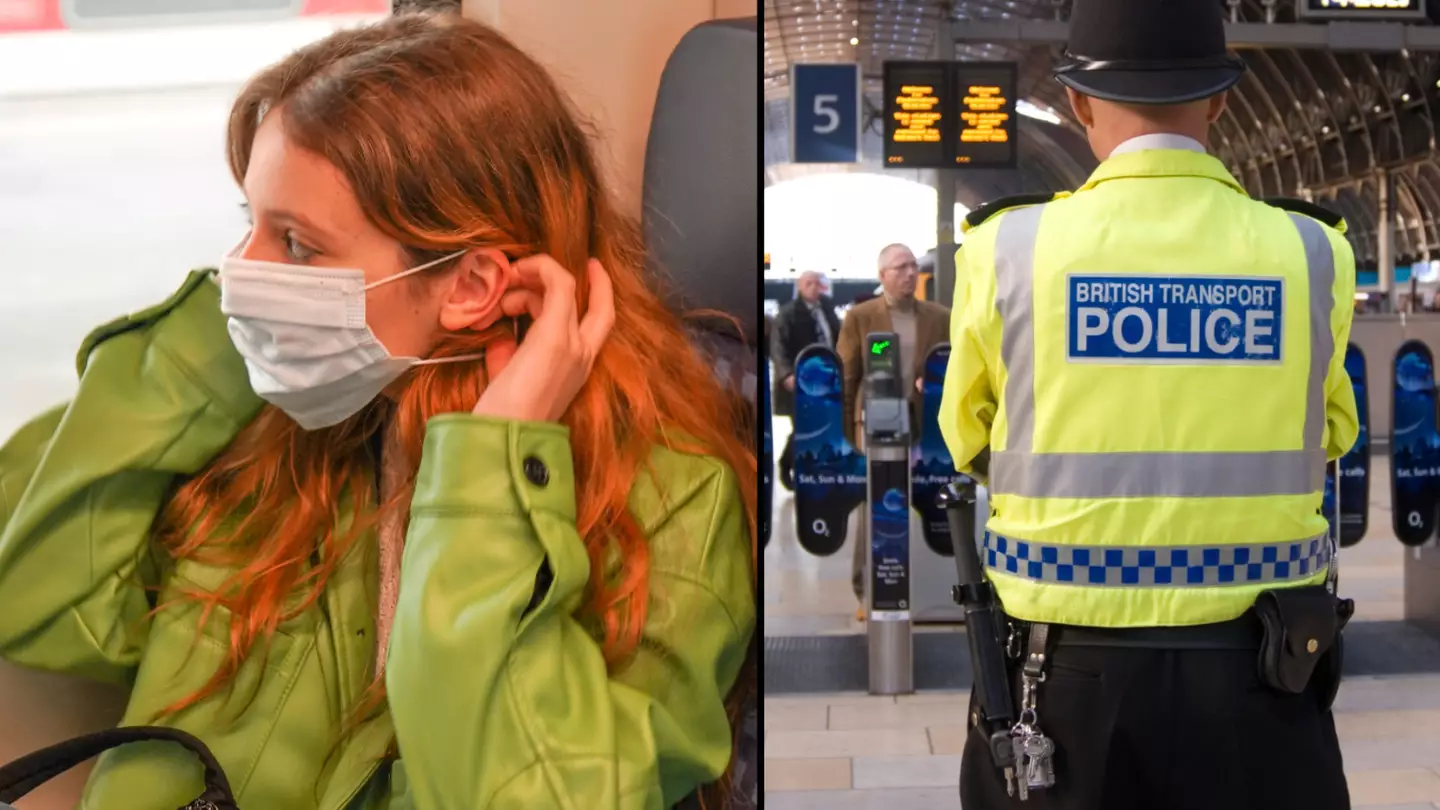
Sat on the train one afternoon, I had my music on low, one headphone in and one hanging out, because as a woman I'd always been told to be extra aware of my surroundings.
But that wasn't enough to stop a man sat opposite me from starting to stroke my leg, staring directly at me.
I looked around me to find a carriage which, while fairly empty, still had a few people sat slightly further down. I desperately tried to make eye contact with someone - anyone - but was unable to meet their gaze. I could've sworn some even glanced in my direction, briefly saw what was going on, and yet chose to do nothing.
Advert
At first, I thought, 'Well, I do live in England after all, a country known for its stiff upper lip,' but my sarcasm soon turned into dread, panic and fear: No one was helping me, so what would happen if the man went even further?
This kind of experience, unfortunately, is not unique.
Just last month, a woman woke up to find a man naked beside her on a train, and overall UN Women UK has found 71 percent of women in the UK have experienced some form of sexual harassment in public spaces.
Now, the Rail Industry has launched a campaign to raise awareness of the role of a bystander in preventing sexual harassment on public transport, and it's not a moment too soon.
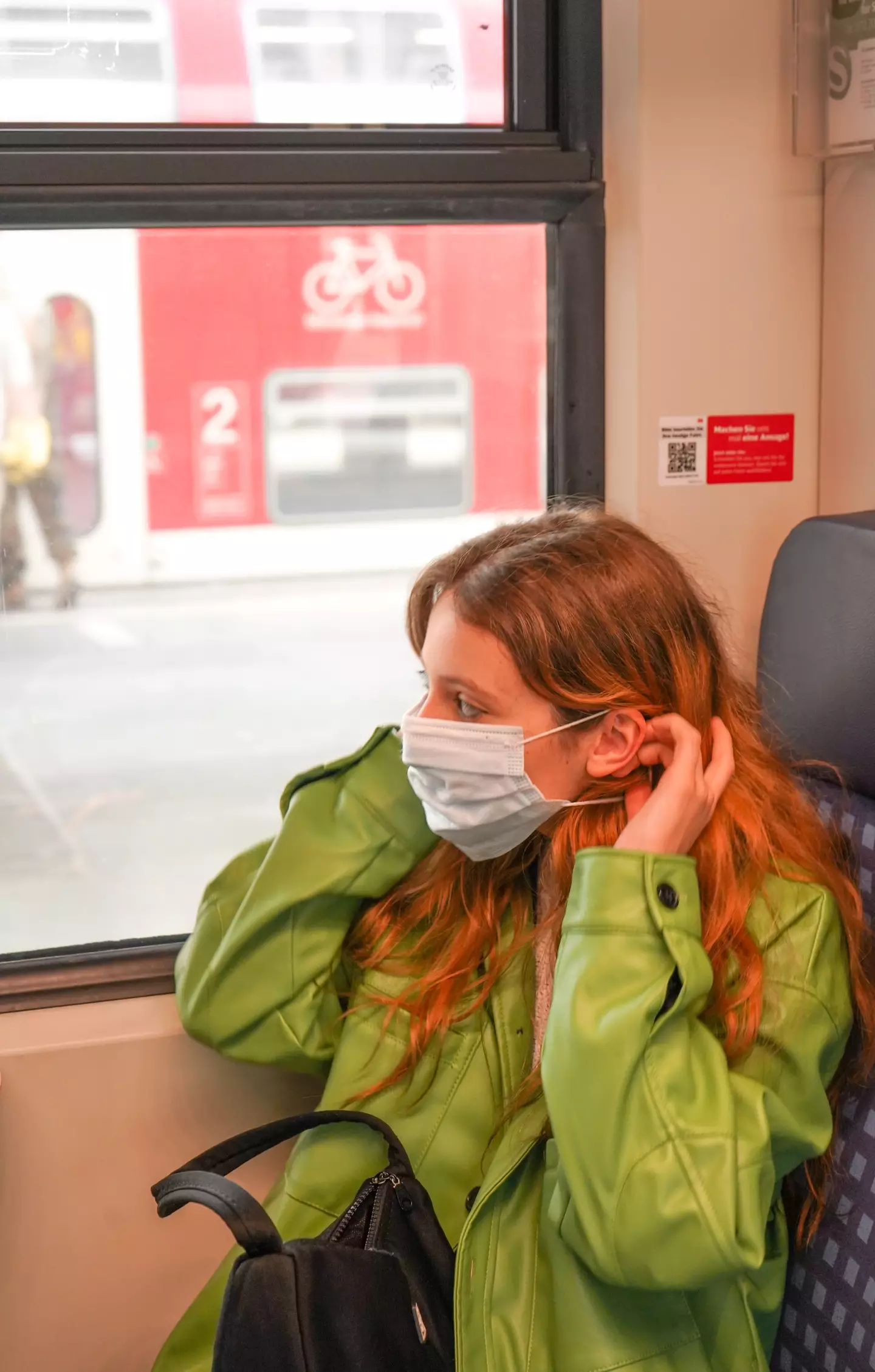
British Transport Police has collaborated with Bystander Intervention Expert Graham Goulden to develop an immersive VR experience and encourage witnesses to 'take small steps to help stop perpetrators'.
The VR experience, featured above, 'put passengers and commuters in the shoes of sexual harassment victims and highlights how they can be frightening and intimidating and, most importantly, can often lead onto something more serious'.
Alice*, a 23-year-old woman living in London, explained why the role of a bystander is so crucial after experiencing harassment herself while travelling home on the overground from Dalston Kingsland.
Already 'a bit nervous' being in a place she didn't know well, Alice recalled: "I sat down and it so happened to be opposite two guys.
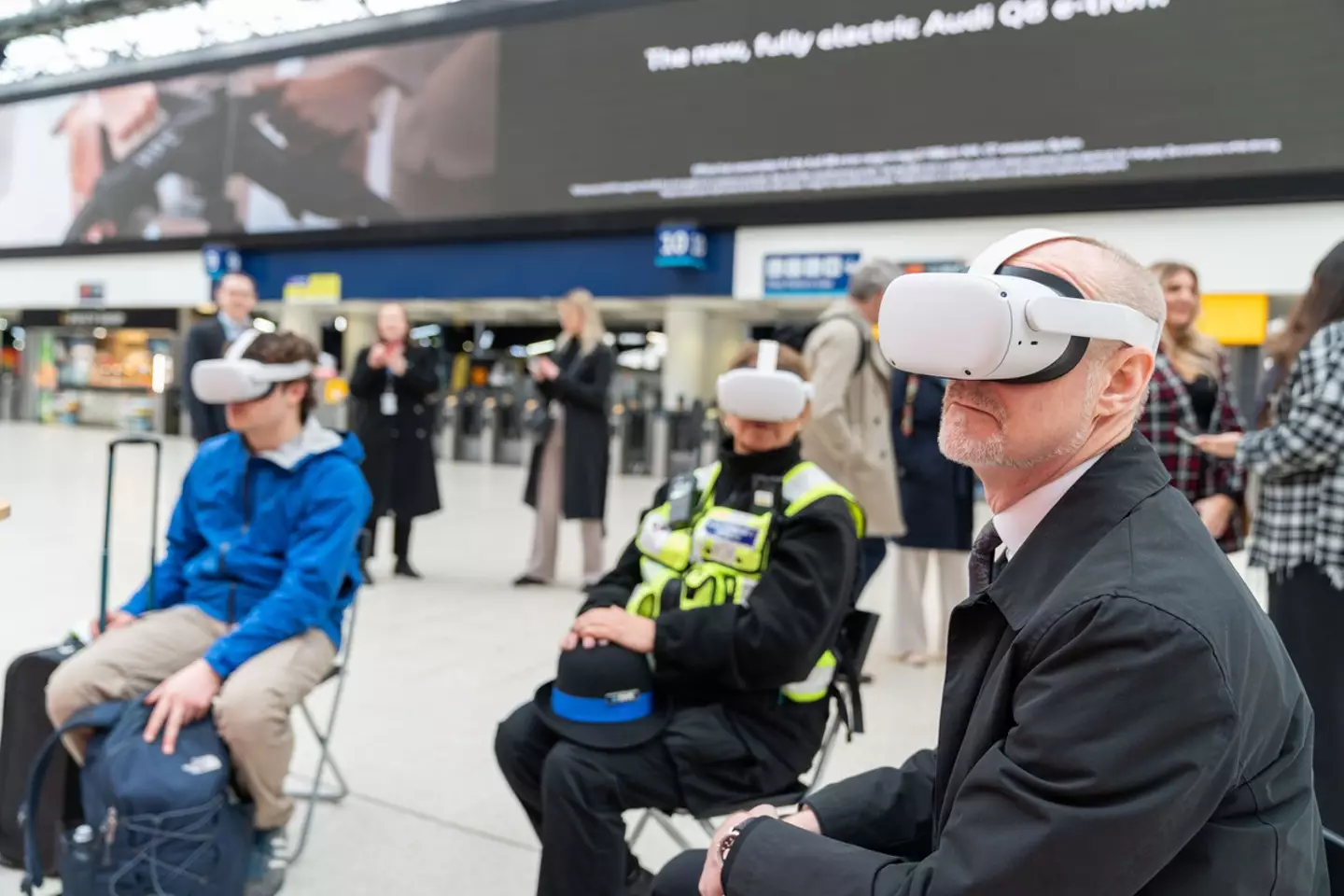
"They immediately started speaking to me and giving me unwarranted attention. They were commenting on my appearance and said numerous times that they were in London one more night and me coming home with them would make it better - saying things to imply I would have sex with them.
"They wouldn't stop talking to making suggestive sexually inappropriate comments even though I was giving back one word answers to show I wasn't interested but to also not make them angry at me for not responding to them."
One of the men came and sat next to Alice, 'so close touching [her] leg' and continued to speak about her looks.
"The fact that he was also touching me made me so scared. I was kind of frozen, unsure what to do," Alice explains.

Alice recalls how no one else on the train got involved.
"It made me feel disappointed in society. People choose self-preservation over helping someone who might be in trouble... in that moment I was a helpless young woman being harassed by men and surrounded by people but nobody did or said anything."
Alice quickly got off the train when her stop came, but she soon realised the two men were following her off the overground.
"They started running behind me and I could hear the coins in their pockets rattling. Luckily, I eventually lost them."
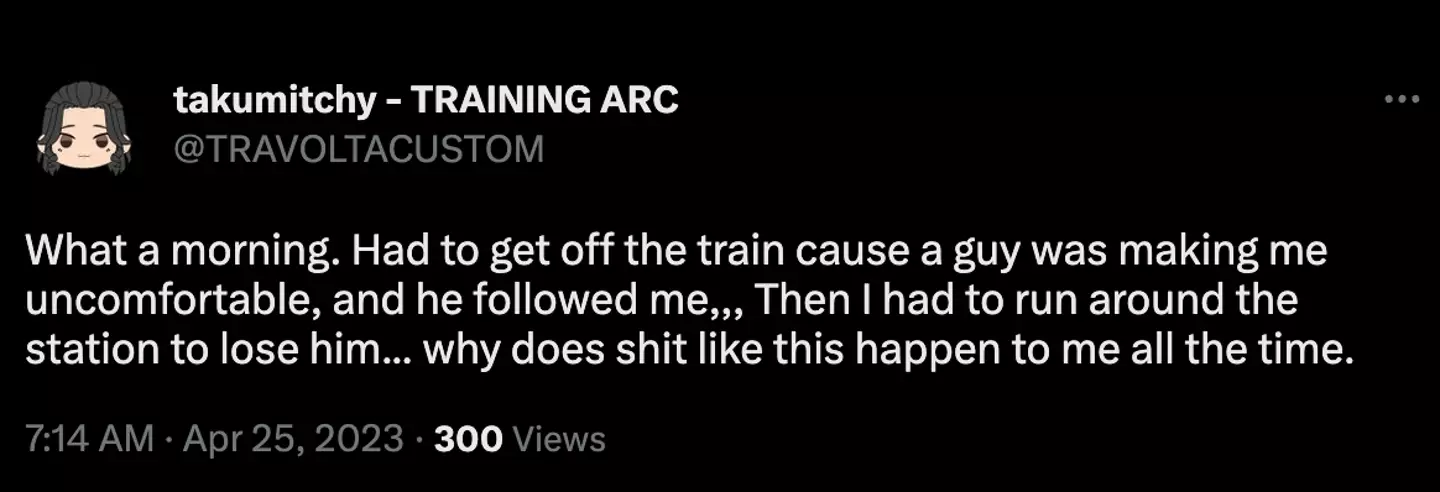
The experience made Alice feel 'terrified, disgusted and worried about how [she] would escape the situation' at the time, but it's had a longer-lasting effect on her mental health too.
"I feel very cautious and worry if it will happen again. When I notice someone staring at me I tend to move because I don't want them to start talking to me," she explains.
I asked Alice if she feels safe on public transport when she's alone. "No," she said.
And when other people are on the train too? "No."
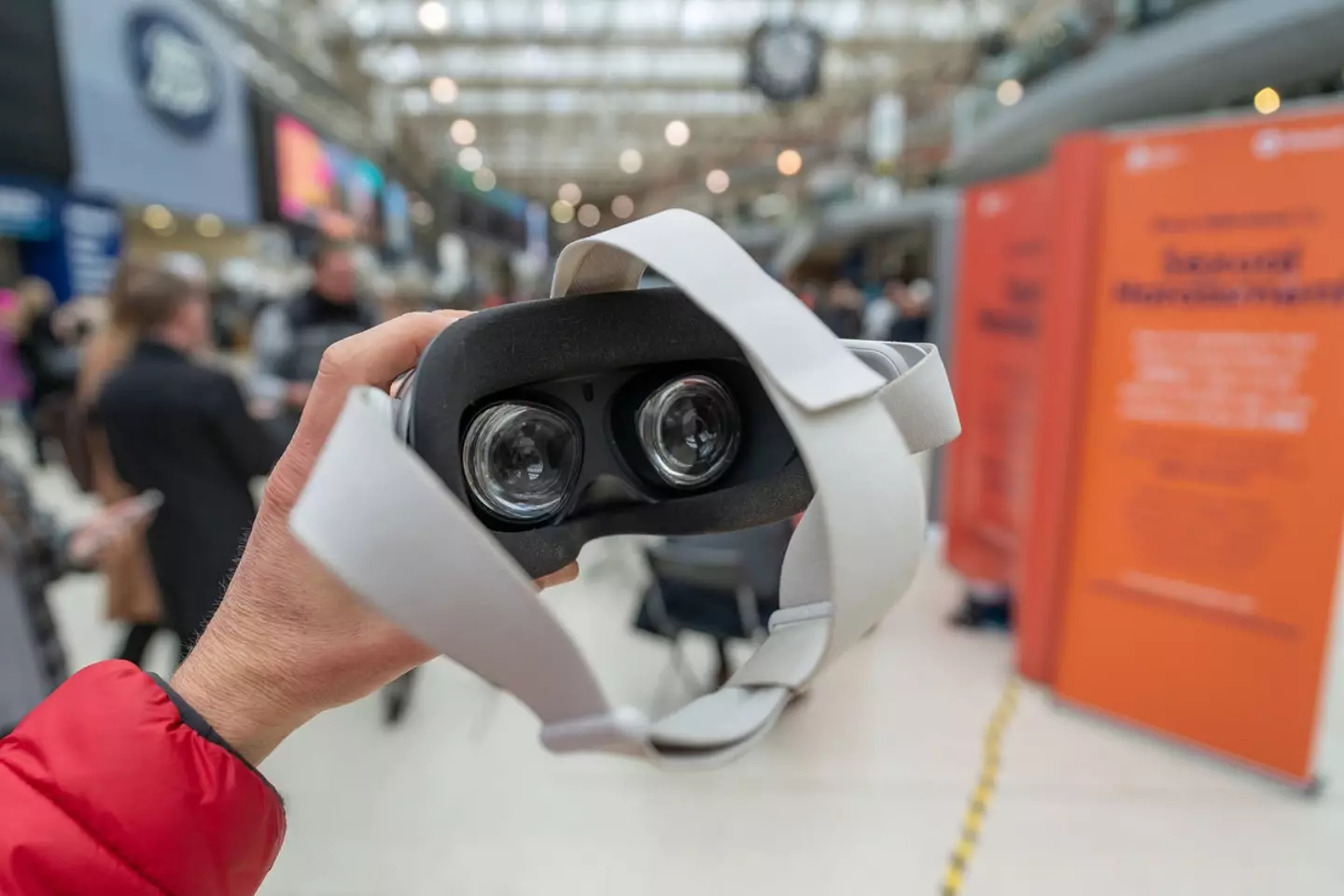
Alice understands people sometimes 'freeze in situations' and maybe 'bystanders have no idea what to do or are afraid they will get hurt'.
However, she added that with there sometimes being no staff at stations late at night and victims not always having the courage to report an incident to British Transport Police - "I felt like it wasn't bad enough to report" - the role of a bystander is crucial.
Indeed, 85 percent of women said they'd be relieved if someone intervened when experiencing sexual harassment on public transport, as per Rail Delivery Group.
So what can a bystander do to safely intervene and help when someone's fallen victim to harassment?
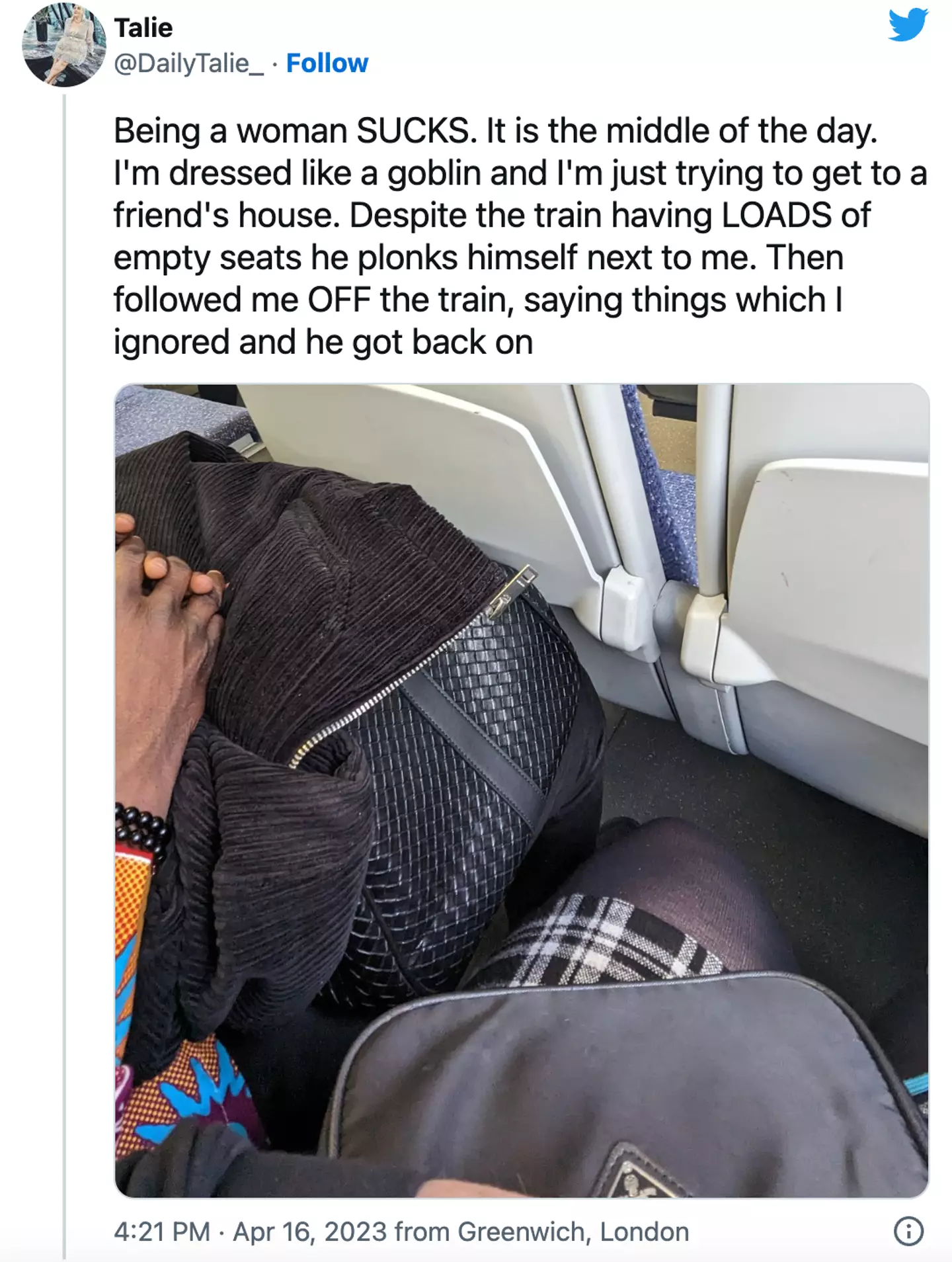
British Transport Police and Goulden recommend offering to swap seats with the passenger being harassed; standing or sitting between the harasser and person being harassed; or asking the perpetrator an unrelated question to distract them, such as 'What's the time?'.
You should try to make sure the passenger is okay after the experience and 'tell them what happened was wrong and wasn't their fault,' before reporting the incident to the British Transport Police on 61016 or via the Railway Guardian app.
"The most important thing to remember is that these actions can all be effective to take if they feel safe to you as a bystander," the advice ends.
As well as raising awareness about how it feels to be sexually harassed on public transport, the VR experience helped clarify what actually constitutes sexual harassment: intrusive staring or leering, persistent questioning, catcalling, sexual comments, jokes, gestures or name-calling, groping or touching and someone exposing themselves.
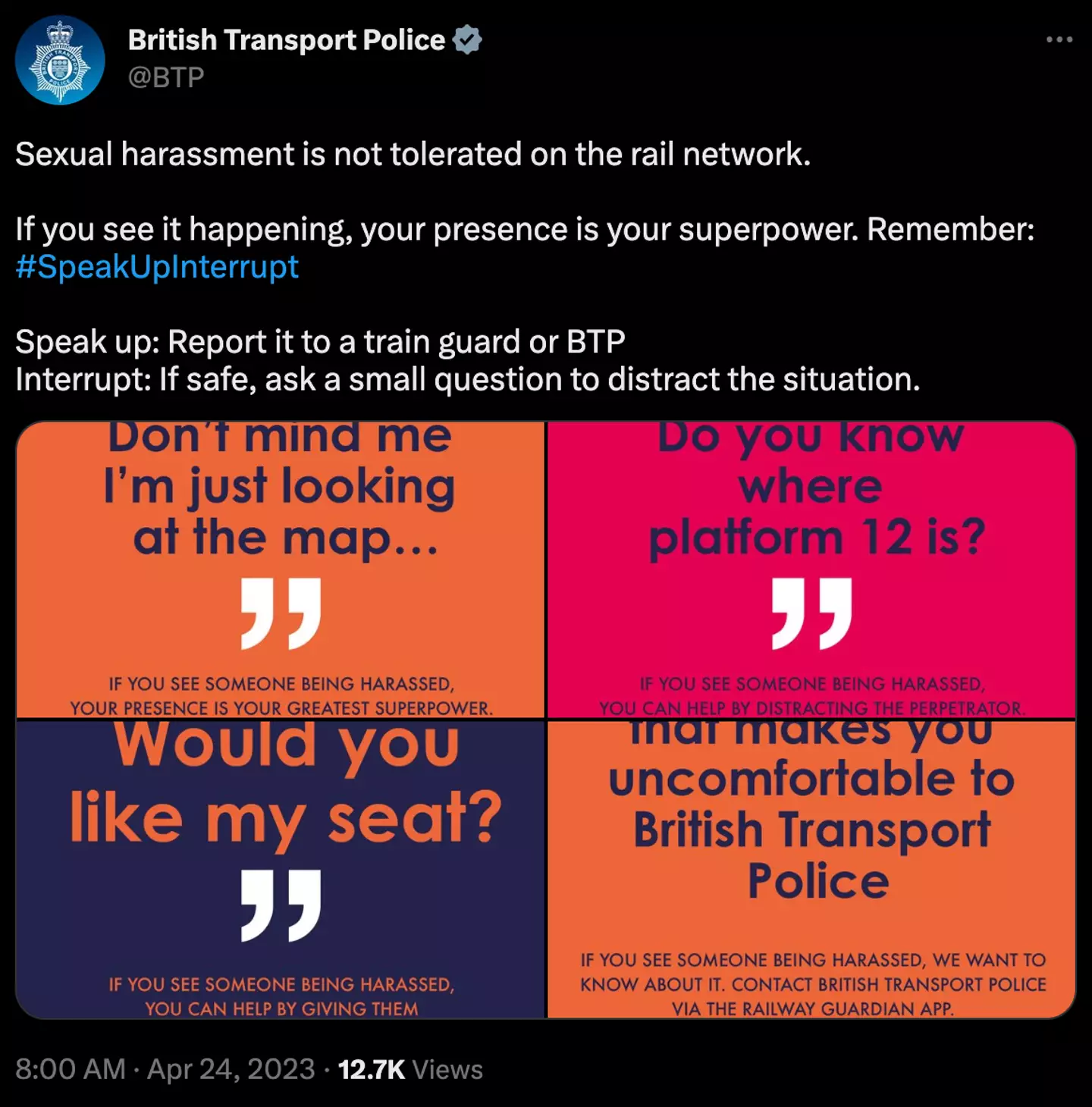
The most common forms of sexual harassment experienced by women aged 18-34 on public transport include sexual comments (27 percent), intrusive staring (25 percent) and persistent questioning (19 percent).
"Nearly one in six (15 percent) of have also experienced stalking or being followed," research from Rail Industry Group shows.
Responses to the VR experience showed it was immensely impactful in educating people more likely to find themselves in the role of the bystander.
One man said: "I had no idea these situations happen so regularly and the tips on how you can hopefully make a difference just by swapping seats or asking a distracting question is something I’ll definitely be sharing with my friends.
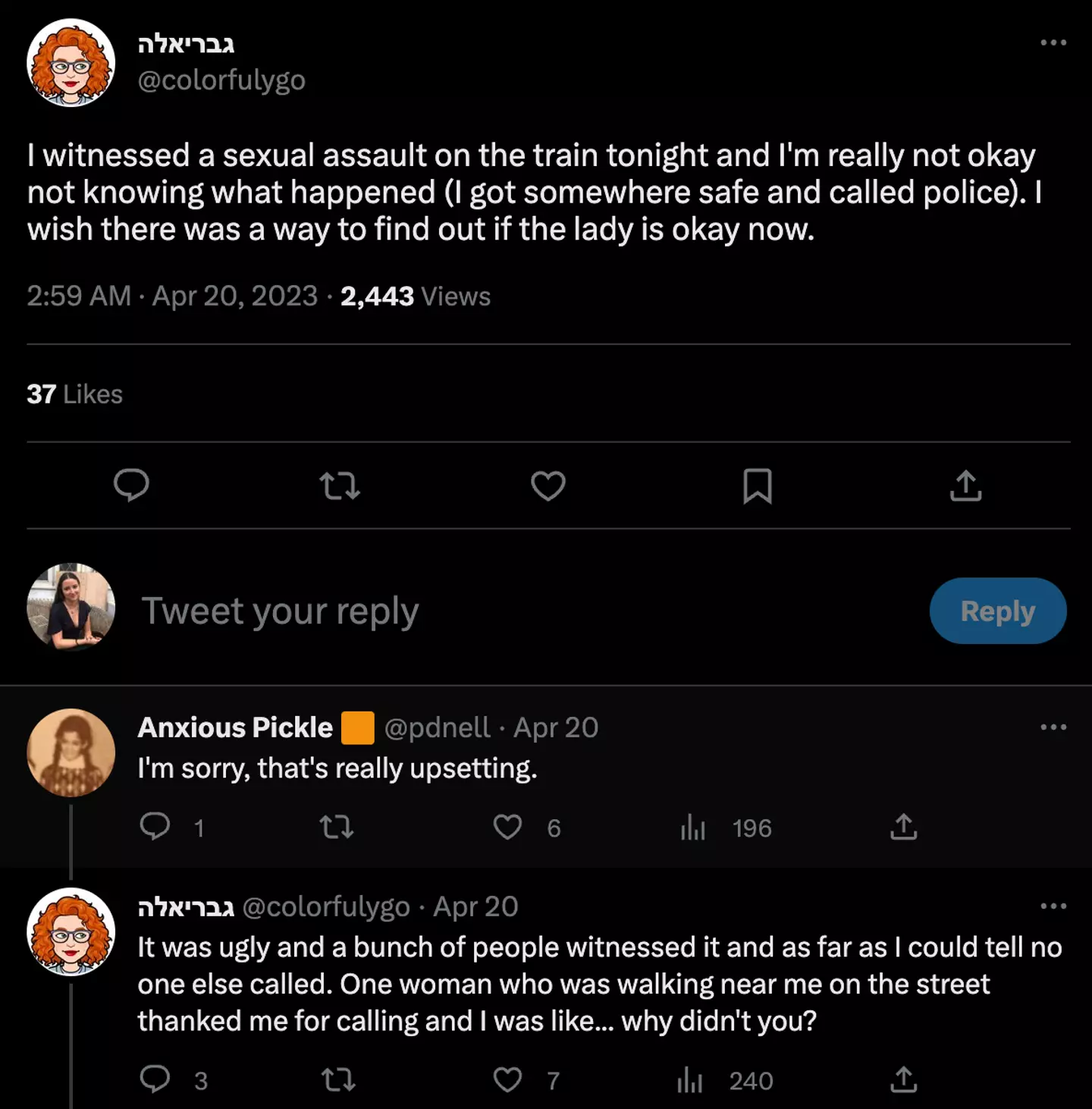
"Really powerful watch and makes you angry on behalf of women."
Jacqueline Starr, Chief Executive of the Rail Delivery Group, assured the rail industry is 'actively tackling all forms of sexual harassment' and 'is committed to making people feel safe', though noted that bystanders can likely 'help before rail staff or police can get directly involved'.
Detective Chief Inspector Nia Mellor, from British Transport Police added: "Reports from bystanders provide crucial intelligence. You can help stop sexual harassment by reporting anything that makes you uncomfortable and thinking about how you can be an active bystander.
“We’re not asking people to police the railway, that’s our job. But small actions such as offering someone your seat if you notice them looking uncomfortable, alerting rail staff, or reporting to police can make an enormous difference."
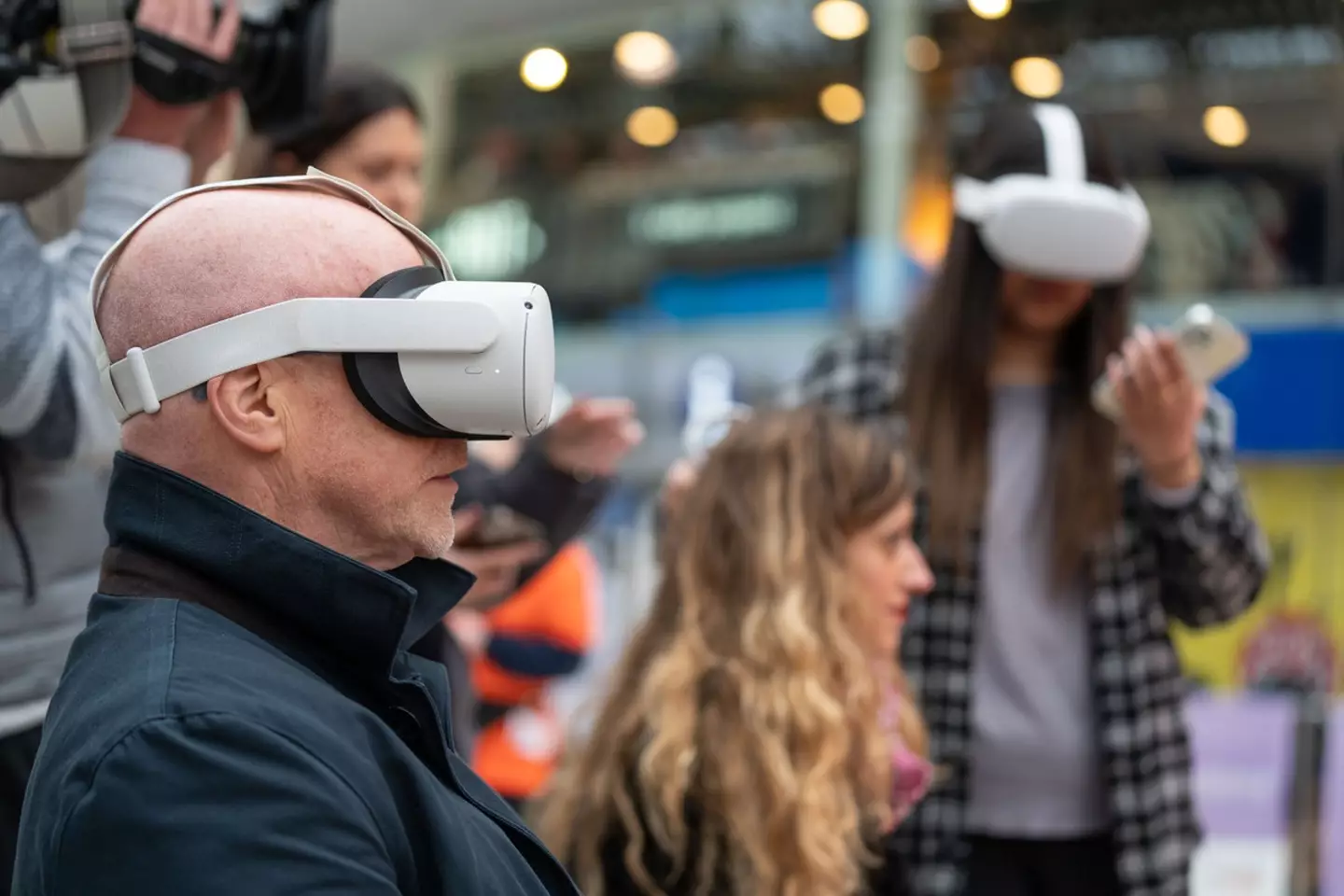
For me, I wish a bystander had stepped in that day on the train.
The man finally stopped stroking my leg after what felt like hours - I had mustered up the courage to shuffle it slightly towards me, but I was left stuck on the train with him until it came to a stop where he got up and simply walked away.
I was left sat there, bewildered, angry, alone. Met with nothing but silence from other passengers, I simply had to try to figure out how I was supposed to try and just carry on with my day.
*Names changed for the purpose of the article.
To report an incident, contact the British Transport Police by texting 61016 or using the Railway Guardian app. In an emergency, always call 999.
If you have been affected by any of the issues in this article and wish to speak to someone in confidence, contact The Survivor’s Trust for free on 08088 010 818, or through their website thesurvivorstrust.org
Topics: Crime, Mental Health, Sex and Relationships, Travel, True Crime, UK News, Technology